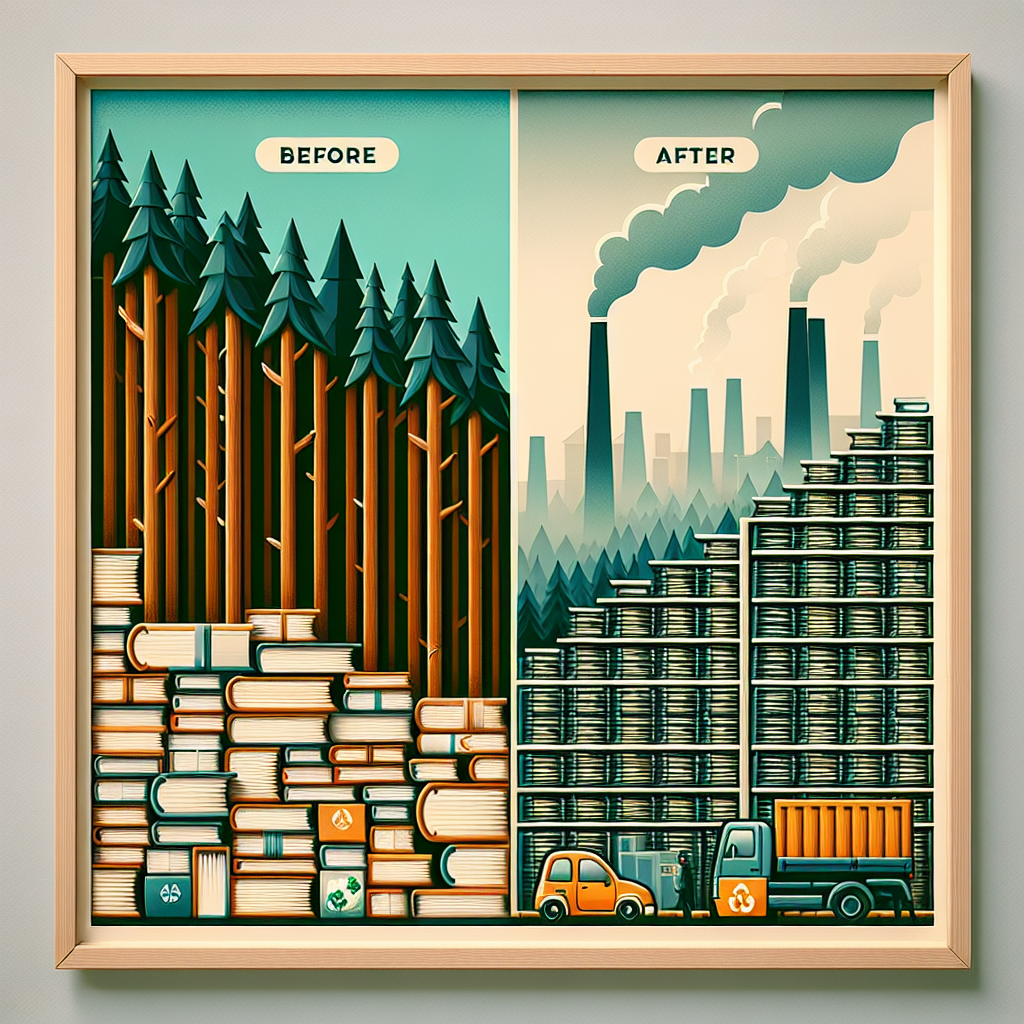The Environmental Impact of Paperback Books: Are They Really More Eco-Friendly?
In recent years, there has been a growing awareness of the environmental impact of different products and industries. One area that has come under scrutiny is the publishing industry, specifically the production of paperback books. Many people assume that paperbacks are more eco-friendly than e-books or hardcover books, but is that really the case?
Paperback books are often touted as being more sustainable because they use less paper and are generally lighter and easier to transport than hardcovers. However, the production of paper itself has a significant environmental impact. The pulp and paper industry is one of the largest consumers of water and energy, and it also contributes to deforestation and habitat destruction. In addition, the bleaching process used to make paper white can release harmful chemicals into the environment.
Furthermore, the transportation of paper and books also contributes to carbon emissions and pollution. Paper is a bulky and heavy material, so shipping large quantities of books can have a negative impact on the environment. In contrast, e-books do not require any physical materials to produce and can be delivered instantly, reducing the need for transportation and storage.
Another factor to consider is the lifespan of paperbacks. While some people may argue that physical books can be reused or recycled, the reality is that many paperbacks end up in landfills once they are no longer wanted. In comparison, e-books do not produce any waste and can be easily deleted or transferred to a new device.
It is important to recognize that the environmental impact of paperbacks is not black and white. While they may have some advantages over other formats, such as e-books or hardcovers, they still have a significant impact on the environment. As consumers, we can make more sustainable choices by supporting publishers that use recycled paper, choosing digital formats whenever possible, and recycling or donating our books instead of throwing them away.
In conclusion, while paperback books may seem like a more eco-friendly option, the reality is that their production and disposal still have a negative impact on the environment. It is important for consumers to be aware of the environmental consequences of their purchasing decisions and to make choices that minimize their impact on the planet. By considering the full lifecycle of products, including paperbacks, we can all work towards a more sustainable future.


